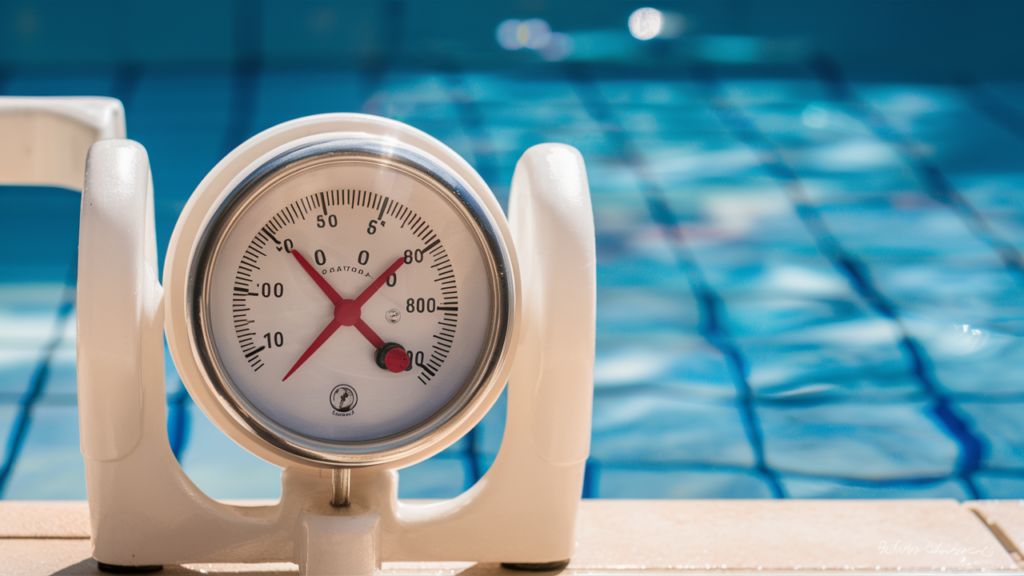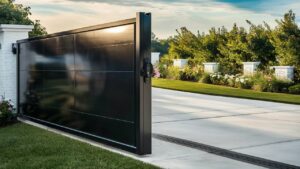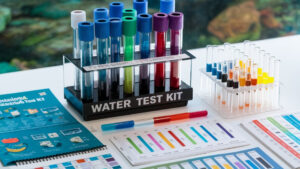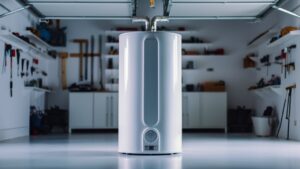Pool thermometers can be accurate, but their precision may vary based on quality and calibration. Factors such as placement and maintenance can also affect their reliability.
When considering a pool thermometer, it is essential to choose a high-quality, well-calibrated device to ensure accurate temperature readings. Proper placement and regular calibration can further enhance the accuracy of the readings, providing you with reliable information about your pool water temperature.
By investing in a quality pool thermometer and following best practices for usage, you can enjoy more accurate temperature monitoring for your pool, helping you maintain optimal swimming conditions.
Diving Into Pool Thermometer Accuracy
Pool thermometers are essential for maintaining the perfect swimming temperature, but the accuracy of these devices is often questioned. Several factors affect the precision of pool thermometers, including:
- The location of the thermometer in the pool
- The quality of the thermometer
- The calibration of the thermometer
- The temperature range of the thermometer
There are different types of pool thermometers, including digital, analog, and floating thermometers. Digital thermometers are the most accurate, with a precision of +/- 0.5 degrees Fahrenheit, while analog thermometers are less accurate, with a precision of +/- 1 degree Fahrenheit. Floating thermometers provide a general temperature reading and are not as precise as digital or analog thermometers.
It is crucial to ensure that your pool thermometer is accurate to prevent any discomfort while swimming. Regular calibration and maintenance can help ensure that your pool thermometer provides accurate temperature readings.
The Science Behind Water Temperature Measurement
When it comes to measuring pool water temperature, accuracy is essential. Pool thermometers use different methods to gauge temperature, including digital sensors and traditional mercury or alcohol-filled tubes. These thermometers must be calibrated regularly to ensure accuracy. Calibration involves adjusting the thermometer to match a known standard, such as an accurate laboratory thermometer. Factors such as altitude, atmospheric pressure, and the condition of the thermometer can affect its accuracy. By calibrating your pool thermometer, you can ensure that it provides precise temperature readings, allowing you to maintain the ideal water conditions for swimming and other activities. Understanding the science behind water temperature measurement and the importance of calibration can help you make the most of your pool thermometer.
Digital Vs. Analog Pool Thermometers
When comparing the accuracy of pool thermometers, it is important to consider the differences between digital and analog options. Digital thermometers offer the advantage of providing precise temperature readings with minimal effort. They are easy to read and often come with additional features such as memory and remote monitoring capabilities.
However, digital thermometers may require batteries, and their accuracy can be affected by battery life and the quality of the device. Analog thermometers, on the other hand, do not require batteries and are generally reliable. They provide a simple and cost-effective solution for monitoring pool temperature.
While digital thermometers offer more advanced features, they may be less reliable in certain conditions. Analog thermometers, although lacking in advanced features, can be trusted to provide accurate readings consistently. Ultimately, the choice between digital and analog thermometers depends on personal preference and the specific needs of the pool owner.
Common Misconceptions About Pool Temperature
Are pool thermometers accurate? This is a question that often arises among pool owners. Let’s debunk some common myths surrounding pool temperature and provide clarity on interpreting thermometer readings.
Myth 1: Pool thermometers are always accurate. While pool thermometers are designed to measure water temperature, they can be affected by various factors such as placement, calibration, and environmental conditions. It’s important to ensure your thermometer is properly installed and calibrated to obtain accurate readings.
Myth 2: Pool temperature should always match the thermostat. The temperature displayed on your pool thermometer may not always match the thermostat reading. This can be due to variations caused by factors like sunlight exposure, wind, or the depth of the water. It’s essential to understand these differences and adjust your expectations accordingly.
Myth 3: A slight difference in temperature readings is a cause for concern. Minor variations in temperature readings between different thermometers or devices are normal. It’s important to focus on consistent trends rather than small discrepancies.
By understanding these misconceptions and interpreting pool thermometer readings correctly, you can ensure a comfortable and enjoyable swimming experience in your pool.
Best Practices For Accurate Temperature Readings
When measuring pool temperature, optimal placement of the thermometer is crucial for accurate readings. Place the thermometer away from direct sunlight and pool equipment to prevent false readings. Additionally, ensure the thermometer is submerged at least 18 inches below the water’s surface for the most precise measurement. Frequency of temperature checks is also important, with daily monitoring being ideal to track fluctuations. By following these best practices, you can rely on your pool thermometer to provide accurate temperature readings consistently.
Maintenance And Care For Pool Thermometers
Regularly clean and store your pool thermometer to ensure accurate readings. Use a soft cloth and mild detergent to wipe the thermometer clean. Avoid harsh chemicals that can damage the thermometer. Proper storage in a cool, dry place can extend its lifespan.
Monitor the accuracy of your pool thermometer periodically. If you notice inconsistent readings or damage, it may be time to replace it. Look for signs of wear and tear such as foggy displays or slow response times. Investing in a new thermometer will ensure your pool stays safe and comfortable.

Expert Tips For Pool Owners
Pool Thermometers Accuracy: Pool professionals advise regularly checking pool thermometers for accurate readings. Incorporating temperature checks into your pool maintenance routine is crucial for optimal pool care. It is recommended to calibrate pool thermometers periodically to ensure precision. Additionally, placing the thermometer in different spots of the pool can help identify variances in temperature. Consulting with experts can provide insightful tips on maintaining proper pool temperature.
Frequently Asked Questions
Are Pool Thermometers Accurate?
Yes, pool thermometers are generally accurate, but their accuracy can vary depending on the type of thermometer and how it is calibrated.
How Do I Calibrate My Pool Thermometer?
To calibrate your pool thermometer, fill a glass with ice water and insert the thermometer. It should read 32°F (0°C). If it doesn’t, adjust it accordingly.
Can Pool Thermometers Be Off By A Lot?
Yes, pool thermometers can be off by a few degrees due to factors such as poor placement, direct sunlight, and water circulation.
What Is The Best Type Of Pool Thermometer?
The best type of pool thermometer is a digital thermometer with a remote sensor that can be placed in the water, away from direct sunlight and circulation.
Conclusion
Pool thermometers can provide accurate temperature readings when properly calibrated and maintained. It’s essential to choose a high-quality thermometer and regularly calibrate it for precise results. By following these guidelines, pool owners can ensure that their thermometers deliver accurate readings, allowing them to maintain optimal water conditions for a safe and enjoyable swimming experience.






